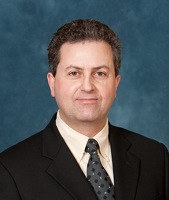ICAPS 2011 Invited Speakers
Jason D. Williams
Spoken Dialog Systems as an Application of Planning under Uncertainty
Abstract: Spoken dialog systems present a classic example of planning under uncertainty. In a spoken dialog system, a computer is trying to help a person accomplish something, using spoken language as the communication medium. A key challenge is that speech recognition errors are ubiquitous and impossible to detect reliably, so the state of the conversation can never be known with certainty. Another challenge is that people do not behave deterministically. Despite these challenges, the system must choose actions to make progress to a long term goal. As such, decision theory presents an attractive approach to building spoken dialog systems. Initial work on "toy" dialog systems validated benefits, but also found that straightforward formulations could not scale to real-world problems. Subsequent work by a number of research teams has shown how to scale to industrial-scale systems, how to incorporate high-fidelity user simulations, and how to synthesize commercial development practices with automatic optimization. This talk traces the evolution of this application of planning under uncertainty, comments on progress toward use in industry, and suggests future avenues of research relevant to researchers interested in planning under uncertainty.

Bio: Jason Williams is Principal Member of Technical Staff at AT&T Labs – Research. His research interests include spoken dialog systems, planning under uncertainty, spoken language understanding, and speech recognition. He is on the Scientific Committee of SigDial (the Special Interest Group on Dialog and Discourse), is an elected member of the IEEE Speech and Language Technical Committee (SLTC), and is on the board of directors of the Association for Voice Interaction Design (AVIxD). Jason holds a PhD and Masters in Speech and Language Processing from Cambridge University (UK), and a BSE in Electrical Engineering from Princeton University (USA). Before joining AT&T Labs, he held positions in industry where he built spoken dialog systems which have since fielded millions of phone calls.
Pascal Van Hentenryck
Last-Mile Disaster Preparedness and Recovery
Abstract: Every year, natural disasters cause infrastructure damages and power outages that have considerable impacts on both quality of life and economic welfare. Mitigating the effects of disasters is an important but challenging task, given the underlying uncertainty, the need for fast response, and the complexity and scale of the infrastructures involved, not to mention the social and policy issues. This talk describes how to use planning and scheduling technologies to address these challenges in a rigorous and principled way. In particular, we present the first optimization solutions to last-mile disaster preparedness and recovery for a single commodity (e.g., water) and for the electrical power network. The optimization algorithms were compared to existing practice on disaster scenarios based on the US infrastructure (at the state scale) and generated by state-of-the-art hurricane simulation tools. Some of our algorithms are deployed as part as the Los Alamos National Laboratories operational tools and provide recommendations to the U.S. Department of Homeland Security.

Bio: Pascal Van Hentenryck is a Professor of Computer Science at Brown University. He is a fellow of the Association for the Advancement of Artificial Intelligence, the recipent of the 2002 ICS INFORMS award, the 2006 ACP Award, a honorary degree from the University of Louvain, and the Philip J. Bray award for teaching excellence. He is the author of five MIT Press books and most of this research in optimization software systems has been commercialized and is widely used in academia and industry.
Michael P. Wellman
Empirical Game-Theoretic Analysis and the Behavior of Software Agents
Abstract: The games agents play - in markets, conflicts, or most other contexts - often defy strict game-theoretic analysis. Games may be unmanageably large (combinatorial or infinite state or action spaces), and present severely imperfect information, which could be further complicated by partial dynamic revelation. Moreover, the game may be specified procedurally, for instance by a simulator, rather than in an explicit game form.
With colleagues and students over the past few years, I have been developing a body of techniques for strategic analysis, adopting the game-theoretic framework but employing it in domains where direct "model-and-solve" cannot apply. This empirical game-theoretic methodology embraces simulation, approximation, statistics and learning, and search. Through applications to canonical auction games, and rich trading scenarios, we demonstrate the value of empirical methods for extending the scope of game-theoretic analysis. This perspective also sheds insight into behavioral models and bases for predicting joint action in complex multiagent scenarios.

Bio: Michael P. Wellman is Professor of Computer Science & Engineering at the University of Michigan. He received a PhD from the Massachusetts Institute of Technology in 1988 for his work in qualitative probabilistic reasoning and decision-theoretic planning. From 1988 to 1992, Wellman conducted research in these areas at the USAF’s Wright Laboratory. For the past 18+ years, his research has focused on computational market mechanisms for distributed decision making and electronic commerce. As Chief Market Technologist for TradingDynamics, Inc. (now part of Ariba), he designed configurable auction technology for dynamic business-to-business commerce. Wellman previously served as Chair of the ACM Special Interest Group on Electronic Commerce (SIGecom), and as Executive Editor of the Journal of Artificial Intelligence Research. He is a Fellow of the Association for the Advancement of Artificial Intelligence and the Association for Computing Machinery.

